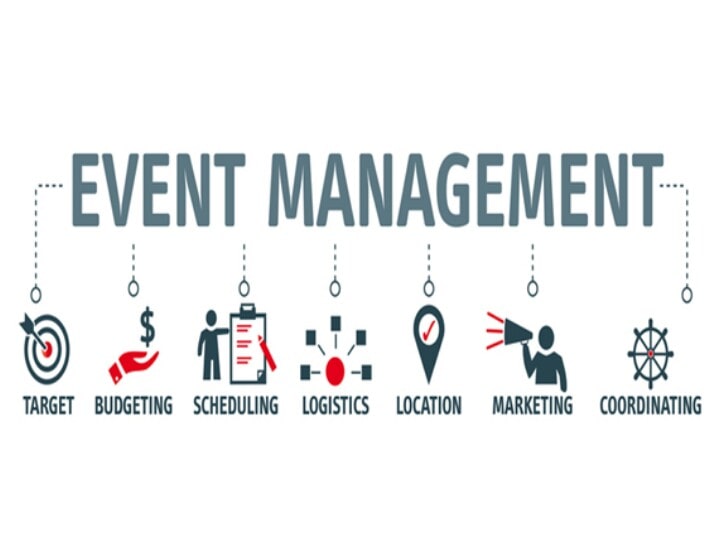Event management is an intricate process that requires meticulous planning, coordination, and execution. Whether you’re organizing a corporate event, a grand wedding, or a product launch, having a robust event management strategy is crucial for ensuring success.
In Dubai, where the event industry is booming, event management companies in Dubai are continually refining their strategies to deliver outstanding experiences. Here are eight key considerations to keep in mind when developing your event management strategy.
1. Define Clear Objectives
The first step in any event management strategy is to define clear objectives. What do you hope to achieve with your event? Whether it’s brand awareness, networking, fundraising, or launching a new product, having well-defined goals will guide your planning process.
Clear objectives also help measure the event’s success and make it easier to evaluate the return on investment.
2. Understand Your Audience
Knowing your audience is crucial for tailoring your event to meet their needs and expectations. Conduct thorough research to understand their preferences, interests, and behaviors. This knowledge will influence every aspect of your event, from the choice of venue and entertainment to the type of communication and marketing strategies you use.
Event planners often conduct surveys and focus groups to gather insights about their target audience.
3. Create a Detailed Budget
Budgeting is a critical component of event management. A detailed budget helps you allocate resources efficiently and avoid overspending.
It should cover all aspects of the event, including venue costs, catering, entertainment, marketing, and contingency funds. Regularly reviewing and updating your budget ensures that you stay on track and can make adjustments as needed.
4. Select the Right Venue
Choosing the right venue is one of the most important decisions in event planning. The venue should align with your event’s objectives, audience size, and theme.
In Dubai, there is no shortage of spectacular venues, from luxury hotels to unique outdoor spaces. Event management companies in Dubai often have established relationships with venues and can negotiate better deals. Ensure the venue offers the necessary facilities, such as adequate seating, audio-visual equipment, and accessibility features.
5. Develop a Comprehensive Marketing Plan
A successful event requires effective marketing to attract attendees. Your marketing plan should include a mix of traditional and digital strategies to reach a wider audience. Social media, email campaigns, press releases, and partnerships with influencers can significantly boost your event’s visibility.
For event planners in Dubai, leveraging local media and community networks can be particularly beneficial. Remember to create engaging content that highlights the unique aspects of your event and encourages people to attend.
6. Focus on Attendee Experience
The attendee experience is at the heart of a successful event. Every touchpoint, from registration to the closing session, should be designed to engage and delight your attendees. Consider factors such as ease of access, clear signage, comfortable seating, and high-quality food and beverages. Interactive elements like live polls, Q&A sessions, and networking opportunities can enhance engagement.
In Dubai, where events often attract a diverse audience, providing multilingual support and culturally sensitive content can improve the attendee experience.
7. Plan for Logistics and Contingencies
Effective logistics planning is essential to ensure everything runs smoothly on the event day. This includes transportation, accommodation, equipment setup, and on-site coordination.
Creating a detailed timeline and task list helps keep track of all the moving parts, having contingency plans in place for potential issues, such as bad weather or technical failures, ensures you can respond quickly and minimize disruptions.
8. Evaluate and Learn
After the event, it’s important to evaluate its success and gather feedback. Analyzing metrics such as attendance rates, engagement levels, and social media mentions can provide insights into what worked well and what could be improved. Sending out post-event surveys to attendees, sponsors, and partners can offer valuable feedback.
Event management companies in Dubai often use these insights to refine their strategies for future events, ensuring continuous improvement and higher satisfaction rates.
Final Thoughts
Effective event management requires careful planning, attention to detail, and a deep understanding of your audience and objectives. By considering these eight key factors, you can develop a robust event management strategy that ensures your event is successful and memorable.
Whether you’re working with event management companies in Dubai or planning independently, these strategies will help you navigate the complexities of event planning and deliver outstanding experiences for your attendees.
Also read : Islamic Studies for Everyone: A Beginner’s Guide
TEKCOOL 35 Feet Long LED Power Pixel Serial String Light, 360 Degree Light in Bulb | Copper Led Pixel String Light for Home Decoration,Diwali,Christmas(Multi) Pack of 1
₹147.00 (as of 19 December, 2024 11:23 GMT +05:30 - More infoProduct prices and availability are accurate as of the date/time indicated and are subject to change. Any price and availability information displayed on [relevant Amazon Site(s), as applicable] at the time of purchase will apply to the purchase of this product.)nutripro Copper Juicer Mixer Grinder - Smoothie Maker - 500 Watts (3 Jars, Silver) - 2 Year Warranty
₹1,799.00 (as of 19 December, 2024 11:23 GMT +05:30 - More infoProduct prices and availability are accurate as of the date/time indicated and are subject to change. Any price and availability information displayed on [relevant Amazon Site(s), as applicable] at the time of purchase will apply to the purchase of this product.)ATOM Digital Kitchen Food Weighing Scale For Healthy Living, Home Baking, Cooking, Fitness & Balanced Diet. | 1 Year Warranty | 10Kg x 1gms with 2 Batteries Included, SF400/A121, Color May vary
₹199.00 (as of 19 December, 2024 11:23 GMT +05:30 - More infoProduct prices and availability are accurate as of the date/time indicated and are subject to change. Any price and availability information displayed on [relevant Amazon Site(s), as applicable] at the time of purchase will apply to the purchase of this product.)SHAYONAM 3IN1 Portable Car Vacuum Cleaner with Blower | USB Rechargeable Wireless Handheld Car Vacuum Cleaner Traveling,Portable,Rechargeable (Vacuum with Blower)(Multy)/*-
₹699.00 (as of 19 December, 2024 11:23 GMT +05:30 - More infoProduct prices and availability are accurate as of the date/time indicated and are subject to change. Any price and availability information displayed on [relevant Amazon Site(s), as applicable] at the time of purchase will apply to the purchase of this product.)Electric Arc Gas Lighter Rechargeable Plasma Lighter for Cooking Gas Stove, Kitchen, Pooja Candles Diyas Safe USB Charging, Windproof, Long-Lasting 360° Flexible Electric Lighter Rechargeable
₹264.00 (as of 19 December, 2024 11:23 GMT +05:30 - More infoProduct prices and availability are accurate as of the date/time indicated and are subject to change. Any price and availability information displayed on [relevant Amazon Site(s), as applicable] at the time of purchase will apply to the purchase of this product.)Discover more from The General Post
Subscribe to get the latest posts sent to your email.





